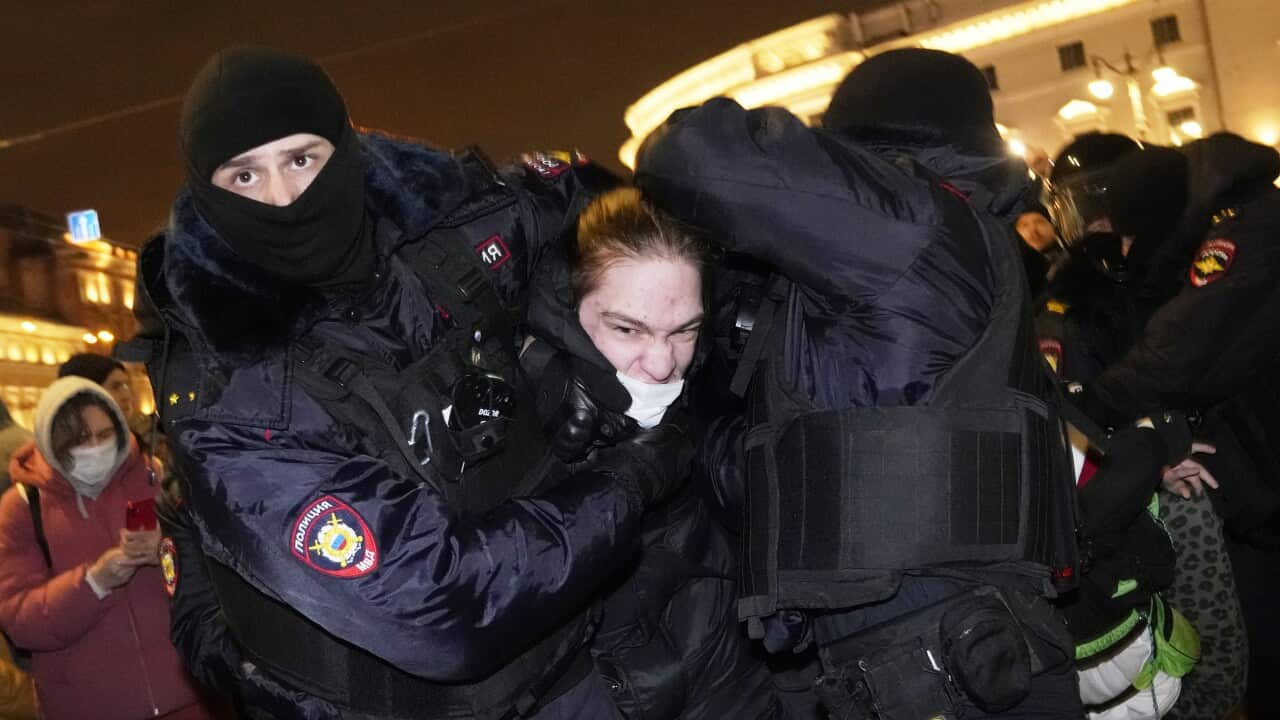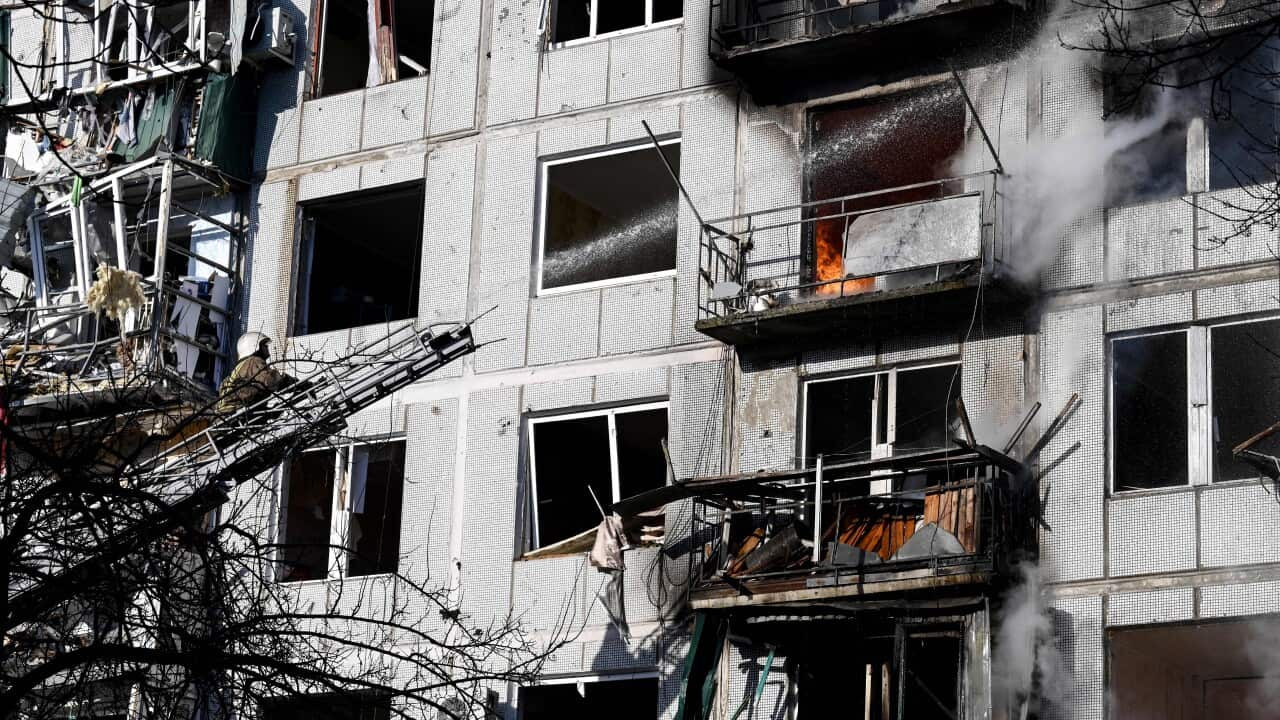Russian police have detained more than 1,700 people at anti-war protests across dozens of cities as thousands took to the streets after President Vladimir Putin sent troops to invade Ukraine.
OVD-Info, which tracks arrests at opposition rallies, said people were detained in 53 Russian cities. More than 900 were arrested in Moscow and over 400 in Saint Petersburg, the monitor said.
Moscow was asleep when Mr Putin ordered an air and ground assault on Ukraine in the small hours of Thursday.
As troops advanced, the Kremlin said it was certain that Russians would "support" the war and that Ukraine needed to be "liberated and cleansed of Nazis".
But, with shocking scenes of death in Ukraine, many prominent figures publicly spoke out against the war on Thursday and thousands of ordinary Russians defied draconian anti-protest legislation to take to the streets across the country.
Several thousand people gathered near Pushkin Square in central Moscow, while up to 1,000 people gathered in the former imperial capital Saint Petersburg, according to AFP correspondents at the scene.
Rallies also took place in dozens of other Russian cities.

A detained demonstrator shows a sign 'No War!' from a police bus in St Petersburg Source: AP / Dmitri Lovetsky/AP
The invasion of Ukraine is taking place during an unprecedented crackdown on the Russian opposition, with most protest leaders assassinated, jailed or forced out of the country.
Jailed opposition leader Alexei Navalny, who used to mobilise Russia's largest protests against Mr Putin, is serving a two-and-a-half-year sentence in a penal colony outside Moscow.
In Moscow, protesters were seen massing around Pushkin Square chanting "No to war!"
The same slogan, "No to war", was spray-painted on the front gate of the Russian parliament's lower house.
"I am in shock. My relatives and loved ones live in Ukraine," Anastasia Nestulya, 23, said in Moscow.
"What can I tell them over the phone? You hang in there?"

A demonstrator holds a sign with a message reading "No To War" in Moscow. Credit: Sergei Karpukhin/Sergei Karpukhin/TASS
She said people were afraid to protest and, in Saint Petersburg, many struck a similar note.
"I have a feeling that the authorities have gone mad," said Svetlana Volkova, 27. She also said few people were willing to protest in Russia.
"People have been fooled by propaganda."
As he was dragged away by three police officers, a young man shouted: "Who are you fighting with? Arrest Putin."
In recent years Russia has toughened protest laws and demonstrations often end in mass arrests.
Earlier Thursday, Mr Navalny said he was against the invasion of Ukraine.
"I am against this war," Mr Navalny was heard saying in a video published by the independent television channel Dozhd.
"This war between Russia and Ukraine was unleashed to cover up the theft from Russian citizens and divert their attention from problems that exist inside the country," the 45-year-old said.
Russian authorities warned anti-war sympathisers from gathering for protests.
The Investigative Committee, a government body that investigates major crimes, warned Russians of legal repercussions for joining unsanctioned protests related to "the tense foreign political situation".
"One should be aware of the negative legal consequences of these actions in the form of prosecution up to criminal liability," the committee said.
Nearly everyone AFP spoke to the day the invasion began in Moscow and Saint Petersburg was against war and bloodshed, although some blamed the crisis on Ukraine.
"Of course, I do not want war. I don't want people to die," said Yuliya Antonova, a 48-year-old English teacher in Saint Petersburg.

housands of people have fled the Donbass, a region in the east of the country. Credit: Europa Press News/Europa Press via Getty Images
Viktor Antipov, who also lives in Saint Petersburg, said he did not support Mr Putin's tactics.
"No-one in his right mind wants war," said the 54-year-old.
"It looks a lot like it has not been thought through," he said of the Kremlin's plan, adding the Russian leader was "not thinking of the long-term".
But some Russians of Mr Putin's generation, like 70-year-old Galina Samoylenko, stood by their leader.
"He wants to help the Russian people and those republics," she said, referring to Ukraine's separatist-held regions of Donetsk and Lugansk.
Igor Kharitonov, a 20-year-old architecture student, called the Russian authorities "degenerates".
"War makes me sick," he told AFP.










